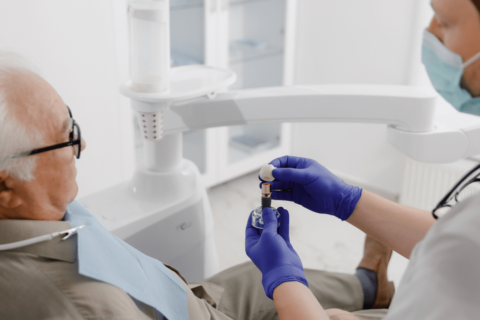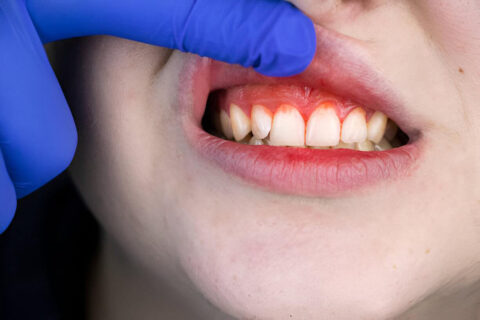How Tobacco Harms Your Teeth and Gums
Tobacco use is a well-known health hazard, with its detrimental effects spanning across various aspects of the human body. While the risks of lung cancer, heart disease, and respiratory issues are widely acknowledged, the impact of tobacco on oral health often goes underreported. The specifics of how tobacco harms your teeth and gums emphasize the importance of quitting to maintain a healthy mouth.
Understanding The Basics: What Is Tobacco?
Tobacco is derived from the leaves of the Nicotiana plant and contains nicotine, an addictive substance. It can be consumed in several forms, including cigarettes, cigars, chewing tobacco, and snuff. Regardless of the form, tobacco has severe consequences for oral health, primarily due to its direct contact with the mouth and gums.
The Oral Health Risks Of Smoking
Smoking is perhaps the most common form of tobacco use. The tar and chemicals in cigarette smoke are particularly harmful to the oral cavity. Here’s a closer look at how smoking affects your teeth and gums:
1. Stained Teeth
The tar and nicotine in cigarettes can cause significant staining of the teeth. Over time, these substances create a yellow or brown hue that regular brushing cannot remove. This discoloration can be unsightly and can often lead to a loss of confidence in one’s smile.
2. Gum Disease
Gum disease, or periodontal disease, is a severe condition caused by bacterial infection of the gums. Smoking weakens the immune system, making it harder for the body to fight off infections, including those in the gums. This can lead to symptoms such as swollen, bleeding gums, and in advanced cases, tooth loss.
3. Tooth Decay
The chemicals in tobacco products can also interfere with saliva production. Saliva is essential for neutralizing acids produced by bacteria in the mouth and for washing away food particles. Reduced saliva flow can lead to dry mouth, increasing the risk of tooth decay and cavities.
4. Bad Breath
Chronic bad breath, or halitosis, is a common issue among smokers. The chemicals in tobacco linger in the mouth, throat, and lungs, producing an unpleasant odor. This persistent bad breath is difficult to mask and can be socially and professionally embarrassing.
The Hidden Dangers of Chewing Tobacco
While smoking is widely recognized for its health risks, chewing tobacco poses equally serious threats to oral health. This form of tobacco is placed between the cheek and gum, where it releases nicotine and other harmful substances directly into the mouth. Here’s how chewing tobacco affects your oral health:
1. Oral Cancer
Chewing tobacco contains carcinogenic chemicals that significantly increase the risk of developing oral cancer. These cancers can affect the lips, tongue, cheeks, gums, and the roof and floor of the mouth. Early signs of oral cancer include sores that do not heal, lumps, and red or white patches.
2. Gum Recession
The abrasive nature of chewing tobacco can cause the gums to recede, exposing the roots of the teeth. This not only increases the sensitivity of the teeth but also makes them more susceptible to decay and infection.
3. Leukoplakia
Leukoplakia is a condition characterized by thick, white patches on the gums, tongue, or the inside of the cheeks. These patches are caused by chronic irritation from the tobacco and can be precancerous, meaning they have the potential to develop into cancer.
The Benefits of Quitting Tobacco
The good news is that the negative effects of tobacco on oral health can be reversed or significantly reduced by quitting. Here are some benefits of kicking the habit:
1. Improved Oral Hygiene
Once you stop using tobacco, you’ll notice an improvement in your oral hygiene. Your teeth will be less stained, and your breath will be fresher. Regular dental cleanings and proper oral care can further enhance these improvements.
2. Reduced Risk of Gum Disease and Oral Cancer
Quitting tobacco lowers your risk of developing gum disease and oral cancer. Without constant exposure to harmful chemicals, your gums can heal, and the overall health of your mouth can improve.
3. Better Overall Health
The benefits of quitting tobacco extend beyond your mouth. You’ll also reduce your risk of heart disease, lung cancer, and other serious health conditions. This holistic improvement in health can lead to a better quality of life.
How Your Dentist Can Help You Quit Tobacco and Improve Your Oral Health
Your dentist can play a crucial role in your journey to quit tobacco and improve your oral health. Here’s how:
1. Professional Advice and Support
Dentists can provide personalized advice on the best strategies to quit tobacco. They can offer insights into nicotine replacement therapies and prescribe medications that can help manage withdrawal symptoms and reduce cravings.
2. Regular Check-ups and Cleanings
Frequent dental visits are essential for monitoring the health of your teeth and gums. Dentists can perform regular cleanings to remove tobacco stains and tartar, and check for early signs of gum disease and oral cancer.
3. Referrals to Specialists
If necessary, your dentist can refer you to specialists, such as periodontists for advanced gum disease or oral surgeons for suspicious lesions. They can also connect you with tobacco cessation programs and support groups.
4. Motivation and Encouragement
Having a healthcare professional who understands your struggles and encourages you can be incredibly motivating. Dentists can track your progress and celebrate your milestones, helping you stay committed to quitting.
How to Quit Tobacco
Quitting tobacco is challenging due to the addictive nature of nicotine, but it’s not impossible. Here are some strategies to help you on your journey to a tobacco-free life:
1. Seek Professional Help
Consulting with a healthcare provider can provide you with the necessary resources and support. They can offer medications, nicotine replacement therapy, and counseling to help manage withdrawal symptoms and cravings.
2. Join Support Groups
Support groups, both online and in-person, can provide motivation and encouragement. Sharing your experiences with others who are going through the same process can be incredibly empowering.
3. Adopt Healthy Habits
Replacing tobacco use with healthier habits can aid in the quitting process. Exercise, meditation, and hobbies can distract you from cravings and reduce stress.
Tobacco use has devastating effects on your oral health, affecting your teeth, gums, and overall well-being. By understanding these risks and taking steps to quit, you can protect your mouth and enjoy a healthier, more confident smile. If you’re struggling with tobacco addiction, remember that help is available, and the benefits of quitting are well worth the effort.
Remember: Your journey to a healthier mouth starts today. Don’t wait—take the first step towards quitting tobacco and reclaiming your oral health.


